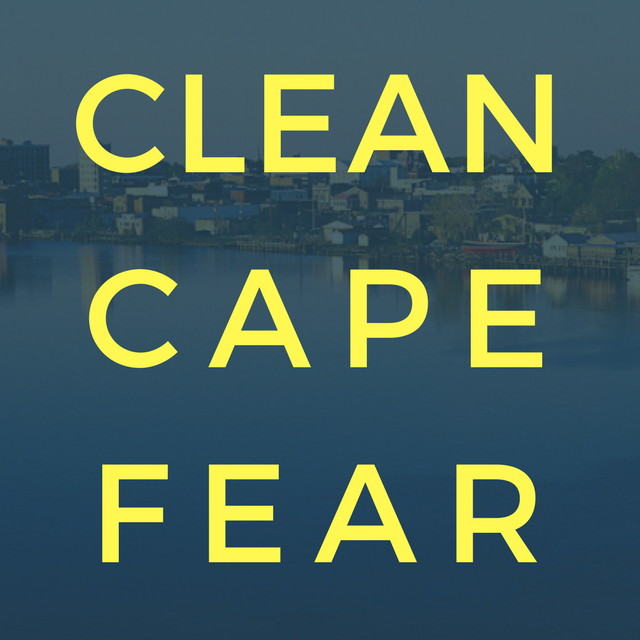2022 Community Water Project
Clean Cape Fear is a member of the planning team for the 3rd National PFAS Conference happening June 15 - 17, 2022 in Wilmington, NC. This conference brings together some of the nation’s top scientists, community advocates, government officials, journalists, attorneys, and more to discuss cutting-edge PFAS topics and share perspectives on how best to address PFAS contamination in the United States.
This June will mark the five year anniversary of our region learning about Chemours, formerly DuPont, contaminating the Cape Fear River—our primary drinking water source, with large quantities of PFAS. Help us make these conference attendees feel welcome. We want them to know how important their work is to our region, to our health, and our future. Without their dedication, it’s possible we would never know what DuPont and Chemours did to our drinking water supply.
We are inviting all K-12 educators to participate in our Community Water Project. Between now and June 3, 2022 please have your students either write a thank you letter or draw a picture using our “Wave of Gratitude” theme. Once your students have completed the letters and/or artwork, collect them and click here to contact Emily Donovan and Lacey Brown to schedule a pick-up time.
Write a Thank You Letter
Help your students write a personal thank you letter to the attendees of the 3rd National PFAS Conference. These attendees spend every day working to address PFAS contamination, like ours, and provide solutions to this public health threat. This is a good opportunity to talk about the importance and benefits of drinking water, why it is so vital to our bodies and what happens when we do not have access to safe, clean drinking water. It’s also a great way to discuss where we get our drinking water and how important it is to protect this source.
PFAS contamination is also not limited to just drinking water. In many parts of our region, these forever chemicals contaminate our soil, air, and food supplies. Students can explore how scientists and community advocates found PFAS contaminating local produce, honey, fish and other wildlife—as well as, the sea foam on Brunswick County beaches.
Students can explore why it is important for scientists to conduct human health studies in our region. Information gained from these studies help inform doctors how to provide better preventive medical care to communities, like ours. Students are encouraged, but not required, to share personal experiences and thoughts regarding what PFAS exposures mean to them and their loved ones.
Draw a Picture
Using the theme “Wave of Gratitude” encourage your students to draw a picture or create artwork that creatively expresses the words “Thank You” for working to protect our drinking water, rivers and oceans from PFAS pollution.
Artwork should be drawn on 12” x 18” or 8.5 x 11” poster board or drawing paper.
Artwork can be horizontal or vertical.
Artwork should depict water elements and contain the message “Thank You” within the artwork.
Artwork must be original, no traced, trademarked, or copyrighted characters, please.
Please include name and grade level on the back or front of the artwork.
Learn About PFAS
Here’s some helpful resources about PFAS and the Lower Cape Fear region:
Vox video: How Forever Chemicals Polluted America’s Waters.
Participant Media: Dark Waters.
DuPont Documentary: The Devil We Know.
NC Policy Watch: FDA: GenX, 14 Types of Perfluorinated Compounds Found in Produce Grown Within 10 Miles of Chemours.
NC Policy Watch: PFAS-contaminated Foam Found at Caswell Beach, Oak Island.
CDC’s Agency for Toxic Substances & Disease Registry: PFAS and Your Health.
NC State: PFAS Hub: Community Resource Page.
Brunswick County: PFAS Water Test Results.
Cape Fear Public Utility Authority: Latest PFAS Test Results.
Pender County: Responds To GenX.
How To Submit Letters & Artwork
Artwork and letters can be submitted any time between now and June 3, 2022. Click here to email Emily Donovan and Lacey Brown to schedule a pick-up time.

